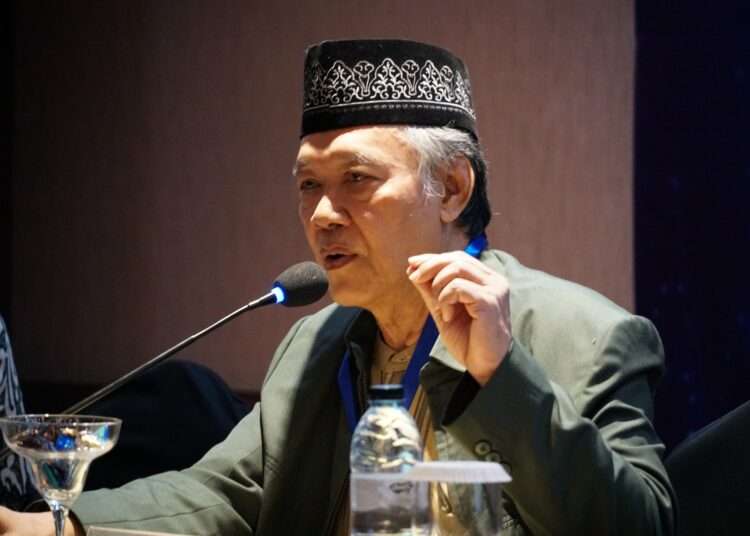MUHAMMADIYAH.OR.ID, YOGYAKARTA – Differences in determining the start of Islamic lunar months often cause confusion among Muslims around the world. This ongoing issue has led to calls for a Unified Global Hijri Calendar. However, a common question remains: why isn’t Mecca, the spiritual center of Islam, used as the main reference point?
Speaking at the National Fourm on the Unified Global Hijri Calendar in Yogyakarta on Saturday, April 19, Chairperson of Muhammadiyah Syamsul Anwar explained why Mecca is not ideal for this purpose. His explanation was based on both Islamic teachings and technical considerations.
Syamsul referred to a hadith narrated by Abu Hurairah and widely reported by at-Tirmidzi, al-Baihaqi, ad-Daraqutni, dan Abu Dawud.
“The fast is the day the people fast, the breaking of the fast is the day the people break their fast, and the sacrifice is the day the people sacrifice.”
This hadith inspired early proposals for a global calendar, including one by Ahmad Shakir, who suggested using Mecca as the reference point. Ahmad Shakir believed that if the moon sets after the sun in Mecca, the next day should be considered the start of the new month everywhere. He viewed Mecca’s spiritual role, especially in relation to the Hajj, as justification for this approach.
However, Syamsul pointed out two major weaknesses in this idea.
First, he highlighted a real case from August 27, 2003 (Rajab 1424 AH), when the moon did set after the sun in Mecca, but the astronomical conjunction, or ijtima’, had not yet occurred. This means the new month technically hadn’t started even though the moon met the visual criteria. According to Syamsul, this proves that “the moonset after sunset” rule doesn’t guarantee the start of a new lunar month.
Second, using Mecca as the sole reference could create inconsistencies. There may be places where the new moon is already visible, but they would be forced to wait because Mecca hasn’t met the required conditions. This would make it difficult to unify observance across different regions.
Syamsul stressed that the hadith should be seen as a call for unity in worship, not as a technical instruction to use Mecca. The hadith emphasizes the importance of observing key dates like Arafah and Eid on the same day around the world.
While Mecca holds symbolic value, Syamsul concluded that it doesn’t offer the scientific precision needed for a global calendar. He emphasized the need for more accurate and practical criteria that can unite Muslims worldwide without being limited by geography.











